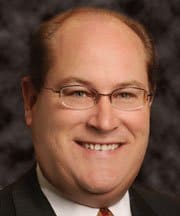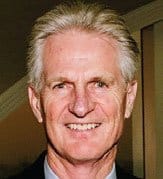1031 EXCHANGE: Questions & Answers #1
By: William L. Exeter
President/CEO of Exeter 1031 Exchange Services, LLC.
Each month we review some of the common questions we receive about 1031 Exchanges. Your questions are always welcome. We invite you to submit them to us at [email protected] or by posting them to the Exeter Discussion Board at exeterboard.com.
SELLER CARRY-BACK NOTES AND 1031 EXCHANGES
Q: I’m selling a small apartment complex and providing owner financing in order to close the deal. The buyer will make a 20% cash down payment plus monthly payments for three years, with a balloon payment due at the end of three years. Is there any way to 1031 the remaining balloon payment received at the end of the three-year period?
A: The initial answer is no. The sale of your real property occurred (closed) upfront (now). The owner financing, also referred to as seller carry-back financing, is merely the financing structure or strategy used to help the buyer acquire and pay for the purchase of your real property. The payoff of the note (and receipt of the principal by you) at the end of the three- year term is not a sale of real estate. It’s just a note payment. Therefore it does not qualify for 1031 Tax Deferred Exchange treatment.
However, there is a way to structure a 1031 Tax Deferred Exchange upfront when your real property is sold and the seller carry-back note is initially drafted. The seller carry-back note must be drafted so that the Qualified Intermediary is listed
as the beneficiary (“lender/owner”) of the installment note. This way the Qualified Intermediary ends up owning the seller-carry back note inside of your 1031 Tax Deferred Exchange. The Qualified Intermediary will receive the net cash proceeds from the sale of your relinquished property and will hold the seller carry-back note inside of your 1031 Tax Deferred Exchange account.
The cash AND the seller carry-back note must be used to acquire your replacement property through your 1031 Tax Deferred Exchange. The note generally has to be converted into cash in order to acquire the replacement property and complete the 1031 Tax Deferred Exchange.
The most common method used to accomplish this is to have the taxpayer contribute cash into his or her 1031 Tax Deferred Exchange account equal to the face value of the seller carry-back note. The 1031 Tax Deferred Exchange account is now holding all cash (as well as the seller carry-back note) and is in a position to complete the 1031 Tax Deferred Exchange by acquiring the replacement property.
The seller carry-back note would be assigned to the taxpayer AFTER the 1031 Tax Deferred Exchange transaction has been completed. The entire sale transaction, including the seller carry-back note, is tax-deferred (assuming they meet all of the other 1031 Tax Deferred Exchange requirements) because the installment note was structured inside the 1031 Exchange.
The only portion of the seller carry-back note that would be taxable is any interest income paid under the terms of the installment note. The receipt of principal through the payoff in three years would not be taxable if the seller carry-back note is structured as part of the 1031 Tax Deferred Exchange as outlined above. If the note is drafted in the taxpayer’s name instead of the Qualified Intermediary’s name (i.e., the seller carry-back note is outside of the 1031 Tax Deferred Exchange), then the balloon payment and corresponding receipt of principal in three years will trigger any remaining deferred capital gain.
MAY I AVOID THE 3.8% TAX WITH A 1031 EXCHANGE?
Q: I was hoping to sell my multi-family property sooner, but now it looks like I will have to sell the property in today’s market. May I avoid, or at least defer, payment of the relatively new 3.8% sales tax if I do a like-kind exchange?
A: You are referring to the relatively new Medicare Surcharge, which is often referred to as the Obamacare tax. And, the answer is yes, you can defer the payment of the Medicare Surcharge by structuring a 1031 Exchange transaction. In fact, the Treasury Department issued a ruling indicating that the Medicare Surcharge could be deferred through a 1031 Tax Deferred Exchange.
The Medicare Surcharge applies to any interest income, dividend income and capital gain that exceeds $200,000 (if single) or $250,000 (if married) in adjusted gross income. The 1031 Tax Deferred Exchange defers the recognition of your capital gains and therefore means that the gain is excluded from your Adjusted Gross Income or AGI. In other words the gains do not increase your Adjusted Gross Income or AGI and therefore will not trigger the Medicare Surcharge.
WHAT HAPPENS IF MY 1031 EXCHANGE FAILS AT YEAR-END?
Q: I am selling an apartment building in November. I will be doing a like-kind exchange, but I’m very worried that I will not be able to buy another property. If I can’t buy another property, what happens?
A: In the case of a failed or partial 1031 Exchange transaction at the end of the year, you may be able to defer your capital gain income tax liability into the following income tax year rather than the current income tax year in which the relinquished property was sold (and closed).
You should not forget to take depreciation recapture into account. Income taxes due from depreciation recapture cannot be deferred into the following income tax year and are due in the taxable year in which you sold (and closed on) your relinquished property.
It will depend on whether the 1031 Exchange Agreement used by the Qualified Intermediary for the 1031 Exchange transaction includes the required language contained in Section 1.1031 of the Department of the Treasury Regulations prohibiting the right to access your 1031 Exchange funds until the following income tax year.
The ability to defer the recognition and reporting of the taxable capital gain into the following income tax year depends on when you have the right to access or receive the benefit from your 1031 Exchange proceeds.
Have 1031 Exchange or 1033 Exchange questions? We have answers. Go ahead, ask! Send your 1031 Exchange to questions to [email protected].

William L. Exeter
William L. Exeter is President/CEO of Exeter 1031 Exchange Services, LLC. He’s been in the fiduciary services industry since 1980, began specializing in real estate tax strategies in 1986 with a specialty emphasis in 1031 and 1033 Exchanges, Self-Directed IRAs, and Land Trusts. Bill has written and lectured extensively on 1031 and 1033 Exchanges, Self-Directed IRAs, and Land Trusts and is a frequent guest expert on San Diego Radio Shows “The Financial Advisors — Money Talk Radio Show” on AM 600 KOGO and on “Inside Business Radio Show” on AM 1000 KCEO. You can email your questions to [email protected], call (866) 393-8370, fax to (866) 393-8371 or mail to 402 West Broadway, Suite 400, San Diego, CA 92101, exeter1031.com. We have Answers; Go Ahead, Ask!













 Accessibility
Accessibility